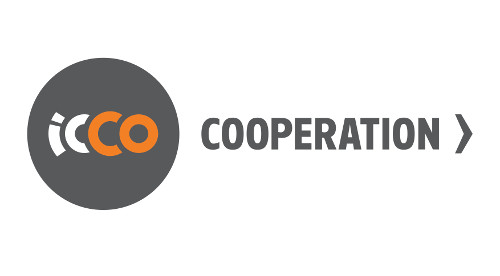HFIAS Questionnaire

Contents
[hide]Household Food Insecurity and Access scale (HFIAS) questionnaire
The HFIAS occurrence questions relate to three different domains of food insecurity (access) found to be common to the cultures examined in a cross-country literature review (FANTA 2004, Coates, 2004) The generic occurrence questions, grouped by domain, are:
1) Anxiety and uncertainty about the household food supply:
- Did you worry that your household would not have enough food?
2) Insufficient Quality (includes variety and preferences of the type of food):
- Were you or any household member not able to eat the kinds of foods you preferred because of a lack of resources?
- Did you or any household member have to eat a limited variety of foods due to a lack of resources?
- Did you or any household member have to eat some foods that you really did not want to eat because of a lack of resources to obtain other types of food?
3) Insufficient food intake and its physical consequences:
- Did you or any household member have to eat a smaller meal than you felt you needed because there was not enough food?
- Did you or any household member have to eat fewer meals in a day because there was not enough food?
- Was there ever no food to eat of any kind in your household because of a lack of resources to get food?
- Did you or any household member go to sleep at night hungry because there was not enough food?
- Did you or any household member go a whole day and night without eating anything because there was not enough food?
The questionnaire should be asked in its entirety, however, the enumerator should follow the embedded skip rules (see table below) to avoid asking frequency-of-occurrence questions when they are not applicable. Project staff should avoid picking and choosing only certain questions. The questions should be asked in the order they are listed. The questions should be asked to the woman who is responsible of preparing the meals for the household.
Explanation of the questions
Q1: Worry about food
This question asks the respondent to report their personal experience with uncertainty and anxiety about acquiring food during the previous month. The interviewer should also read the definition of a “household” that was developed during the preparation of the questionnaire. Mention that this definition of household applies to all the questions with that term.
Q2: Unable to eat preferred foods
One domain of food insecurity (access) is having limited choices in the type of food that a household eats. This question asks whether any household member was not able to eat according to their preference due to a lack of resources. Preference can refer to the form of a particular food (i.e., whole rice vs. broken rice), type of staple (i.e., millet vs. corn) or a high quality food (i.e., a piece of meat or fish). Preferred foods may or may not be nutritionally high quality. The interviewer should also read the definition of a “lack of resources.” Mention that this definition of household applies to all the questions with that term. The respondent needs to answer on behalf of all household members
Q3: Eat just a few kinds of foods
This question asks about dietary choices related to variety – i.e., whether the household had to eat an undesired monotonous diet (little diversity in the different types of foods consumed). The interviewer should read the description of what a monotonous diet might be. The respondent needs to answer on behalf of all household members.
Q4: Eat foods they really do not want eat
This question, which also captures the dimension of limited choices, asks whether any household member had to eat food that they found socially or personally undesirable due to a lack of resources. Often these are foods or food preparations that are consumed only under hardship. Different people may consider different foods to be undesirable, so it is best not to provide examples here at first. The respondent needs to answer on behalf of all household members, according to his or her own perception of the types of food household members ate during the previous four weeks. If more encouragement is required, the interviewer may give some examples using any examples included in the questionnaire and reviewed during training. For all questions, it is important to remind respondents that the examples are not an exhaustive list.
Q5: Eat a smaller meal
This question asks whether the respondent felt that the amount of food (any kind of food, not just the staple food) that any household member ate in any meal during the past four weeks was smaller than they felt they needed due to a lack of resources. The respondent should answer according to his or her perception of what constitutes enough food for the needs of the household members. The respondent needs to answer on behalf of all household members.
Q6: Eat fewer meals in a day
This question asks whether any household member, due to lack of food, had to eat fewer meals than the number typically eaten in the food secure households in their area. The respondent needs to answer on behalf of all household members.
Q7: No food of any kind in the household
This question asks about a situation in which the household has no food to eat of any kind in the home. This describes a situation where food was not available to household members through the households’ usual means (e.g., through purchase, from the garden or field, from storage, etc.).
Q8: Go to sleep hungry
This question asks whether the respondent felt hungry at bedtime because of lack of food or whether the respondent was aware of other household members who were hungry at bedtime because of lack of food. The respondent needs to answer on behalf of all household members.
Q9: Go a whole day and night without eating
This question asks whether any household member did not eat from the time they awoke in the morning to the time they awoke the next morning due to lack of food. The respondent needs to answer on behalf of all household members.
For a full explanation of the tool, please refer to the full guide, which is available online in three languages.
Questionnaire form
| No. | Question | Response options | Code |
| 1 | In the past four weeks, did you worry that your household would not have enough food? | 0 = No (skip to Q2) 1=Yes |
|
| 1A | How often did this happen? | 1 = Rarely (once or twice in the past four weeks) 2 = Sometimes (three to ten times in the past four weeks) 3 = Often (more than ten times in the past four weeks) |
|
| 2 | In the past four weeks, were you or any household member not able to eat the kinds of foods you preferred because of a lack of resources? | 0 = No (skip to Q3) 1=Yes |
|
| 2A | How often did this happen? | 1 = Rarely (once or twice in the past four weeks) 2 = Sometimes (three to ten times in the past four weeks) 3 = Often (more than ten times in the past four weeks) |
|
| 3 | In the past four weeks, did you or any household member have to eat a limited variety of foods (less kinds of food on the plate) due to a lack of resources? | 0 = No (skip to Q4) 1=Yes |
|
| 3A | How often did this happen? | 1 = Rarely (once or twice in the past four weeks) 2 = Sometimes (three to ten times in the past four weeks) 3 = Often (more than ten times in the past four weeks) |
|
| 4 | In the past four weeks, did you or any household member have to eat some foods that you really did not want to eat because of a lack of resources to obtain other types of food? | 0 = No (skip to Q5) 1=Yes |
|
| 4A | How often did this happen? | 1 = Rarely (once or twice in the past four weeks) 2 = Sometimes (three to ten times in the past four weeks) 3 = Often (more than ten times in the past four weeks) |
|
| 5 | In the past four weeks, did you or any household member have to eat a smaller meal than you feltyou needed because there was not enough food? | 0 = No (skip to Q6) 1=Yes |
|
| 5A | How often did this happen? | 1 = Rarely (once or twice in the past four weeks) 2 = Sometimes (three to ten times in the past four weeks) 3 = Often (more than ten times in the past four weeks) |
|
| 6 | In the past four weeks, did you or any other household member have to eat fewer meals in a day because there was not enough food? | 0 = No (skip to Q7) 1=Yes |
|
| 6A | How often did this happen? | 1 = Rarely (once or twice in the past four weeks) 2 = Sometimes (three to ten times in the past four weeks) 3 = Often (more than ten times in the past four weeks) |
|
| 7 | In the past four weeks, was there ever no food to eat of any kind in your household because of lack of resources to get food? | 0 = No (skip to Q8) 1=Yes |
|
| 7A | How often did this happen? | 1 = Rarely (once or twice in the past four weeks) 2 = Sometimes (three to ten times in the past four weeks) 3 = Often (more than ten times in the past four weeks) |
|
| 8 | In the past four weeks, did you or any household member go to sleep at night hungry because there was not enough food? | ||
| 8A | How often did this happen? | 1 = Rarely (once or twice in the past four weeks) 2 = Sometimes (three to ten times in the past four weeks) 3 = Often (more than ten times in the past four weeks) |
|
| 9 | In the past four weeks, did you or any household member go a whole day and night without eating anything because there was not enough food? | 0 = No (questionnaire is finished) 1=Yes |
|
| 9A | How often did this happen? | 1 = Rarely (once or twice in the past four weeks) 2 = Sometimes (three to ten times in the past four weeks) 3 = Often (more than ten times in the past four weeks) |
Consider the HFIAS introduction page and this HFIAS questionnaire put into context page, as complementary reading.

